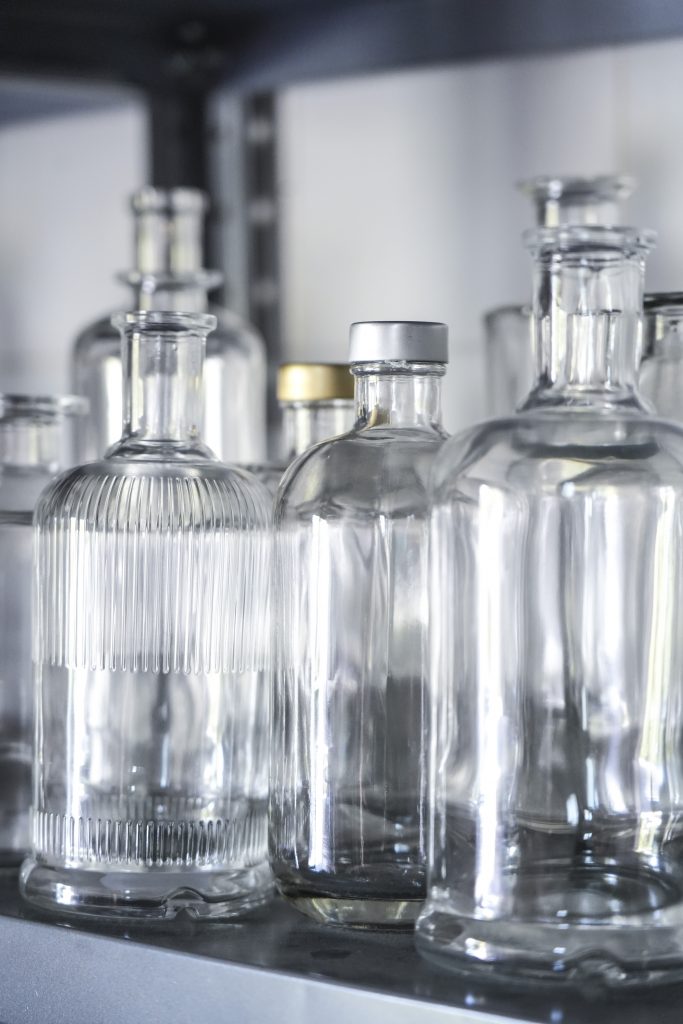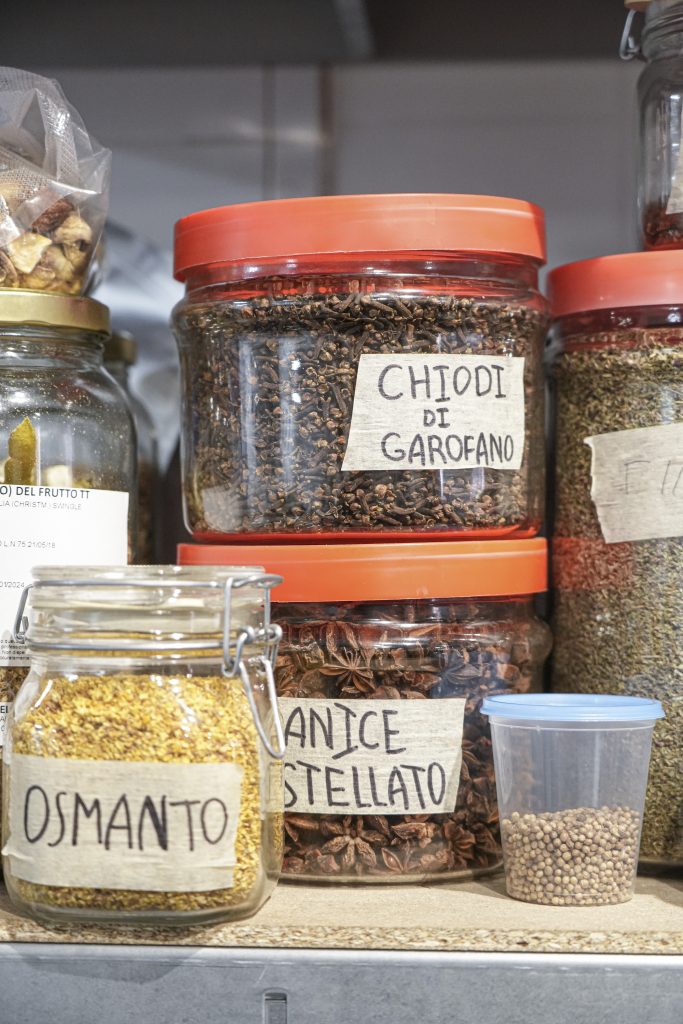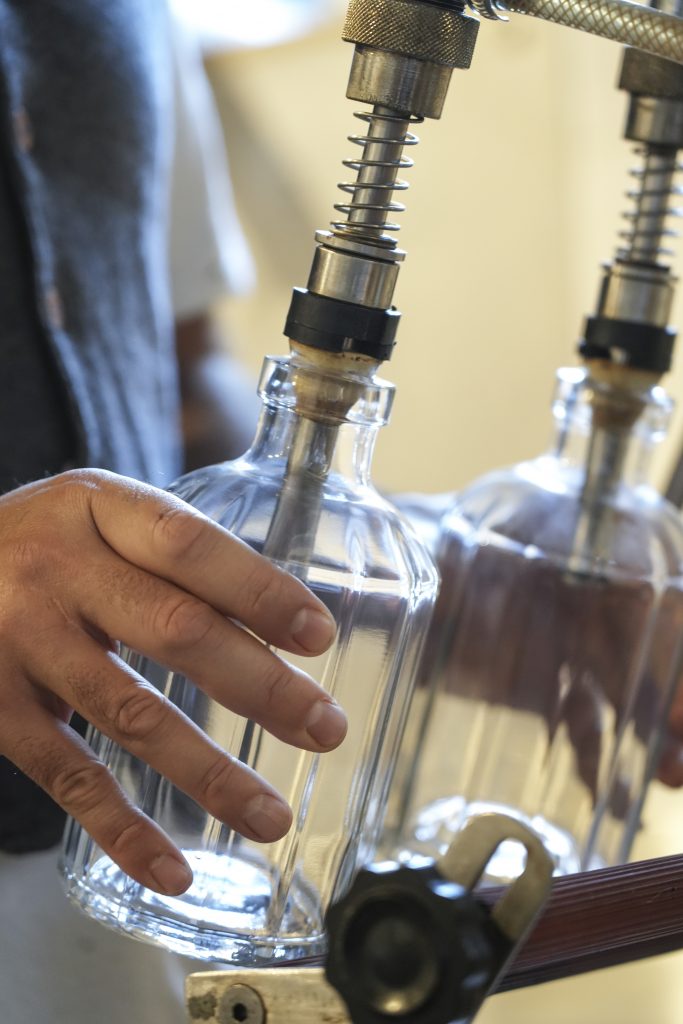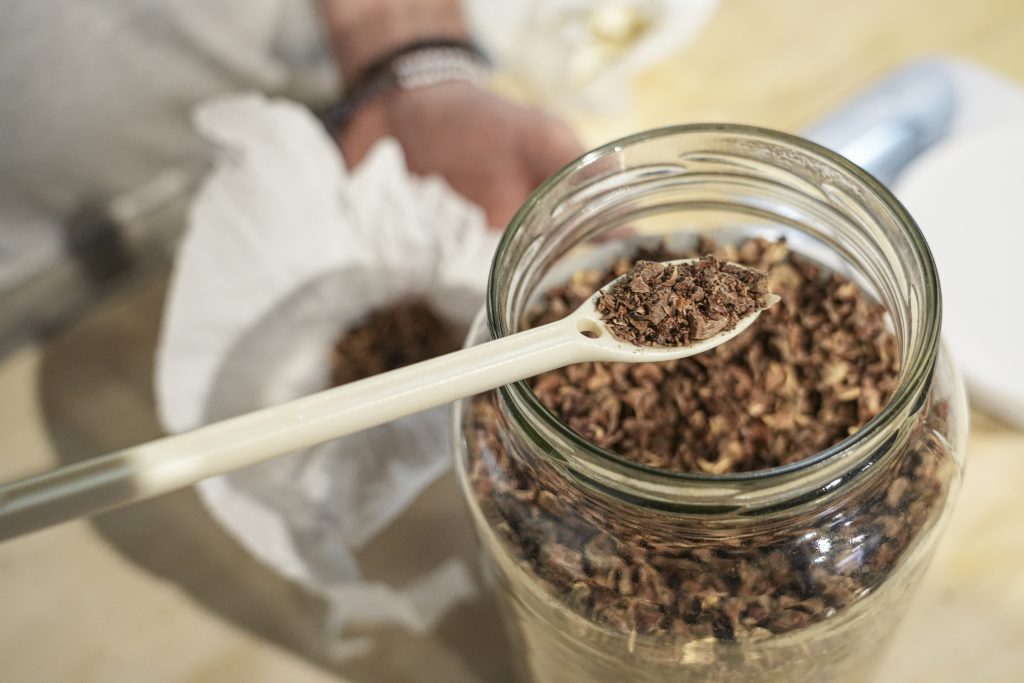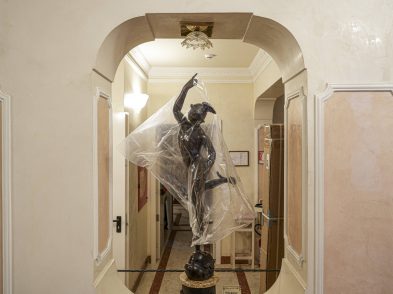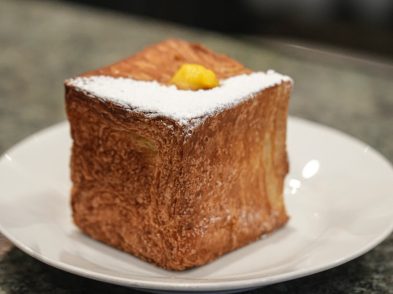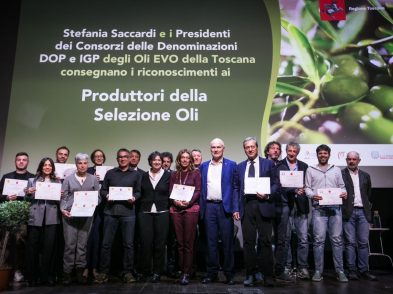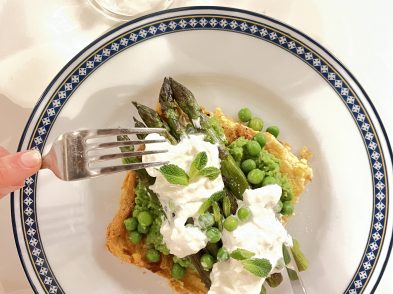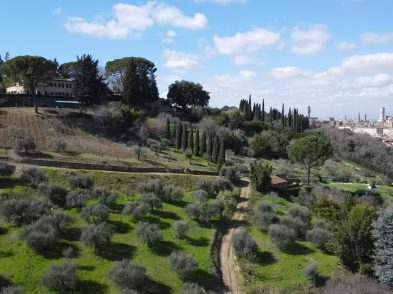Climbing up into the hills around Florence along the narrow streets of Pozzolatico, my final destination was the old bakery where the “spirit cowboys” are fermenting more than just their thoughts. Fermenthinks is a start-up that surfaced from the creative opportunities provided by the pandemic. A micro-distillery has been set up around the only still in use in the Florence area. The aim? To produce sartorial spirits. Three renowned names on the international bartending scene are behind the venture, Stefano Cicalese, Julian Biondi and Matteo Di Ienno, who have invented a tailor-made spirits service that didn’t exist before and is conquering a brand-new market.
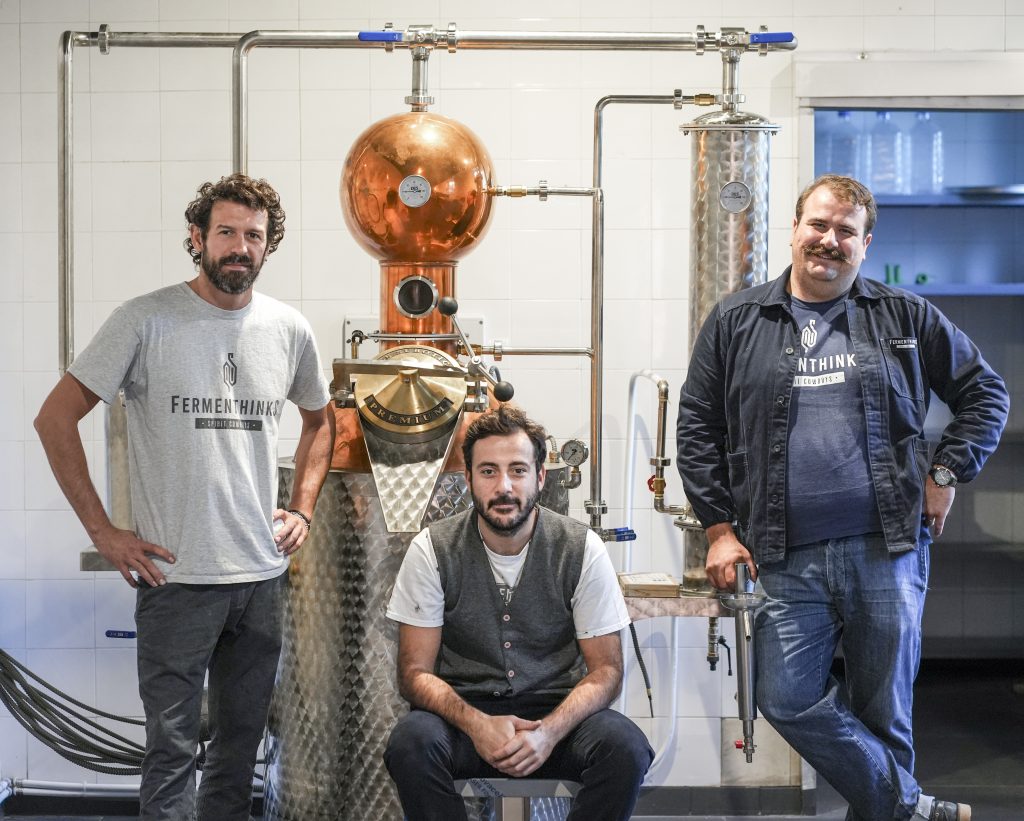
Why “spirit cowboys”?
We’ve embarked on an adventure in uncertain times, exploring new frontiers, making gin and spirits as private labels in the first urban distillery in the hills near Florence.
How did the idea for Fermenthinks come about?
We come from a sector in which we felt certain we’d always have work: People will always go out to eat and drink! You could change the bar or restaurant where you worked, but employment was never a problem. Then came lockdown and everything had a massive question mark hanging over it. That’s when we had the idea of producing small batches (our smallest to date has been 50 litres) for the bar and restaurant market. Made-to-measure distillation is the answer to these times. Serving a client base that doesn’t need to think and act like a multinational, or feel the need to become number one in their field, but instead has the chance to customize their own gin or spirits with a unique personality, their own label, solely for distribution in one place. The idea is that you will only be able to find that product at your neighbourhood bar.
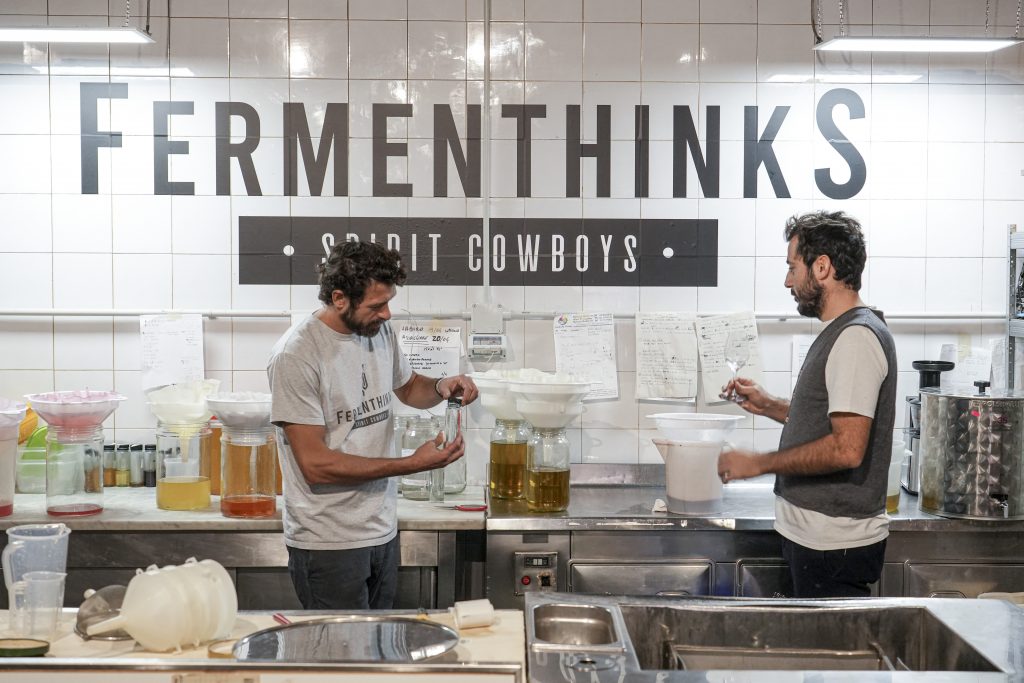
How is the market responding?
So far, the clients have come to us organically and spontaneously. When you work well, news spreads quickly in the restaurant world.
How does the interaction work with your customers?
We’re sartorial in this too. Our customers come to us already motivated by the idea of producing their gin with us. Some already have clear ideas, a personality that they are aiming to convey and a story to tell. Perhaps they have done a few experiments of their own. It’s a personal initiative and we have accepted some very interesting challenges with exceptional results. We invest a lot in development, seeking to deploy our knowledge about what works in order to replicate the production. Our strength lies in having a lab for prep and development, where we can study the different botanicals from scratch. When customers come here, they can taste a gin that we have made for one of our customers instead of samples. For example, we were invited to a party at a distillery near Milan and we had to ask our customers to send us their bottles, like the bar owner in Piombino, for whom we produced a gin remotely, or Betta of Mario43, for whom we distilled a gin with figs and honey.
So, gin is your strong point.
We make all types of gin in the three categories, which contain different distillation and production styles. London Dry Gin is our forte; it’s finer and purer, and harnesses the versatility of the buffalo still, a stunning 150-litre alembic that reigns supreme in our headquarters and never stops working. The London Dry Gin method has very precise guidelines, but you can change the aromas. We’re talking about a single distillation of all the botanicals, to which only water can be added. After all, Stefano [Cicalese] is the first master distiller of new-generation gin in Italy (he’s the man behind Peter in Florence), which drives customers to aspire to produce top-tier gin.
What are the new ideas and frontiers of gin?
Although we think we’re competitive and we offer a complete service—research, development, production, bottling and labelling—this is a complicated time in history in which certain raw materials, such as cardboard, labels and glass, are seeing price hikes of up to 60 per cent. Obviously, this means that customers are discouraged to invest in product development. For that reason, we have come up with a solution for bars: bag-in-box for gin. If you’re a bar that wants to have your own gin to serve and sell, you can keep some bottles for sale and have the bag-in-box for refills. That way, the cost is lowered by almost 50 per cent, as well as improving logistics and storage. A much more sustainable gin.
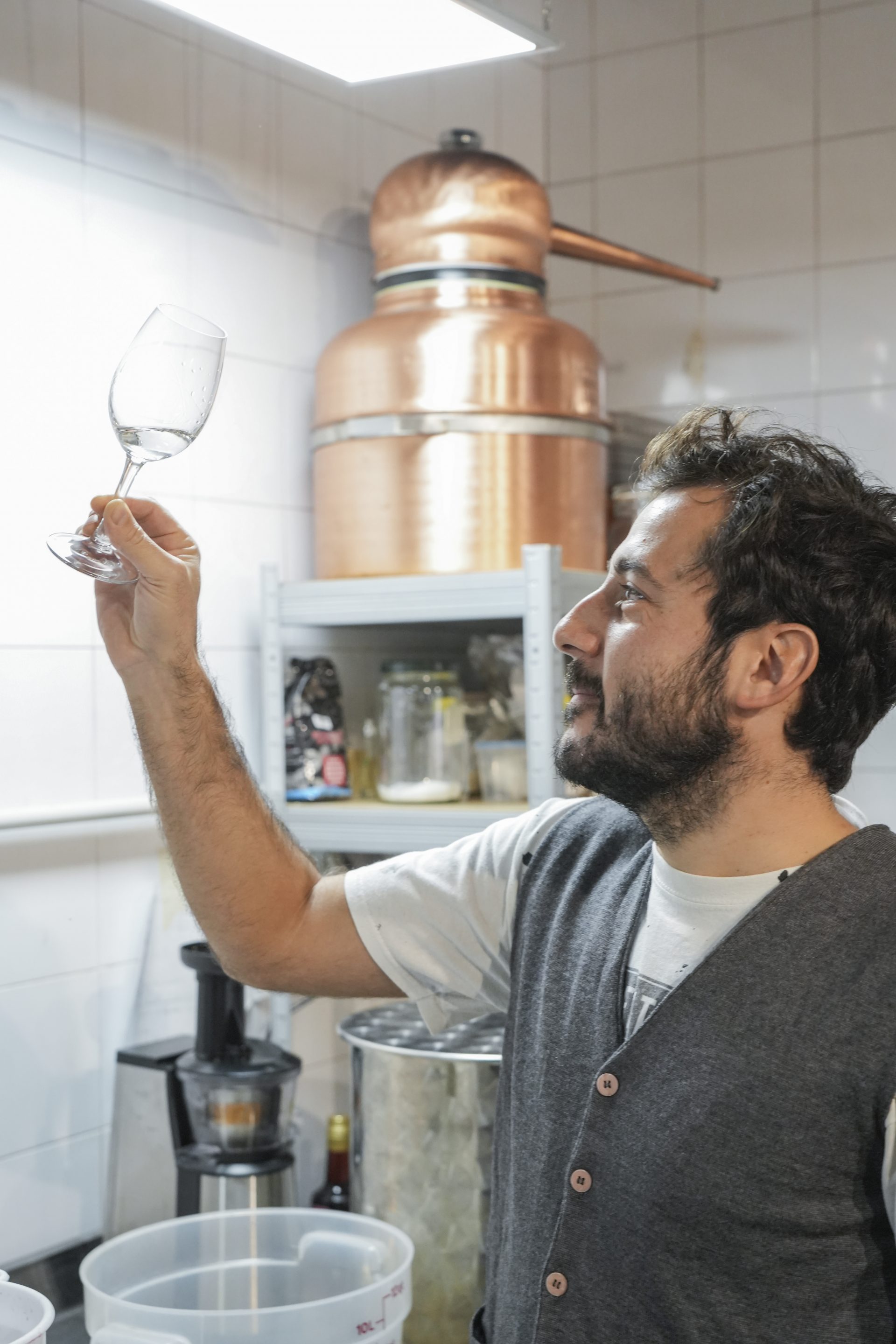
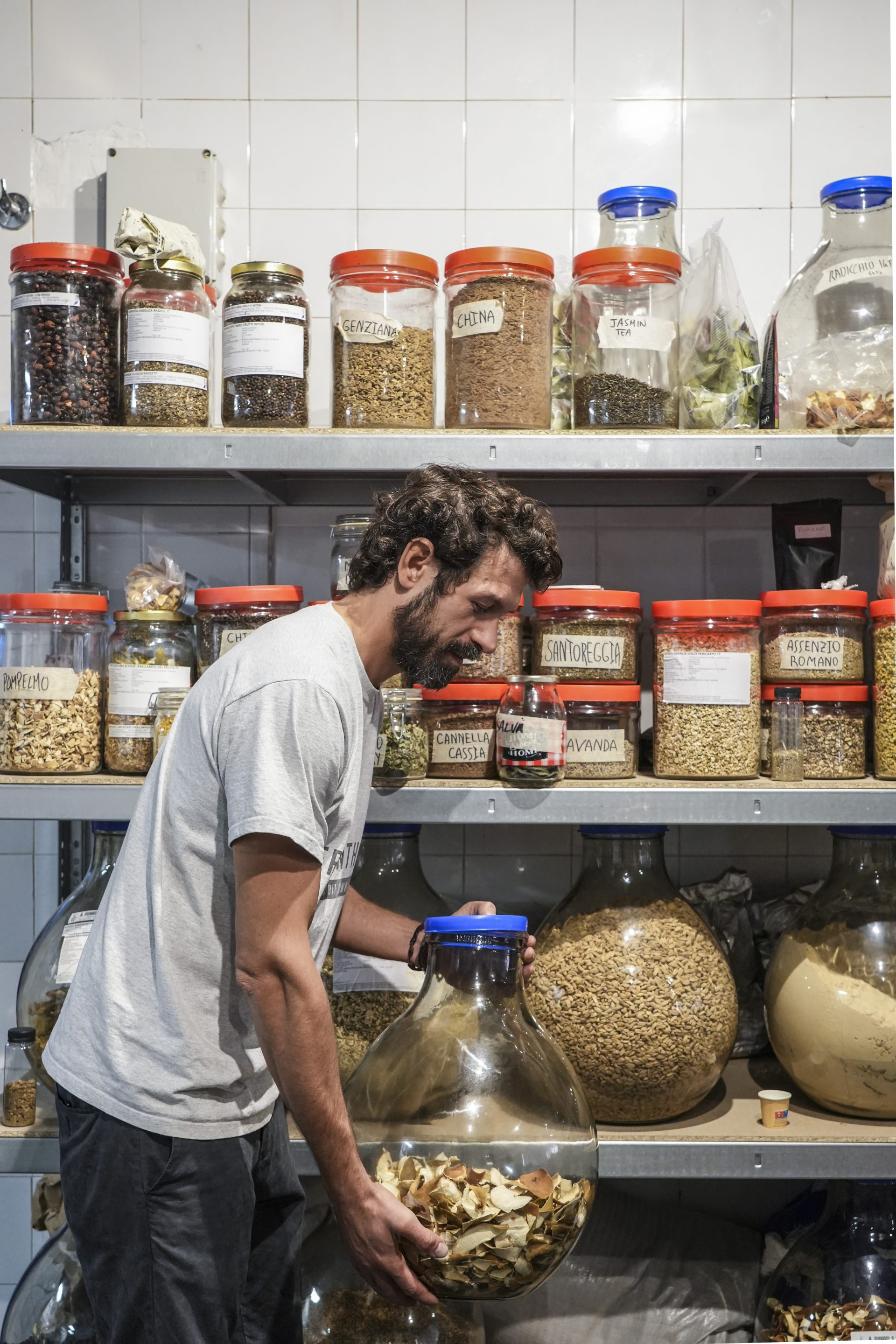
How do you propose to work with wineries?
We can make vermouth together! This fortified wine originated in Piedmont and traditionally has a base of white wine. Added to this are sugar, alcohol and a number of botanicals, which always include wormwood. Tuscany’s wineries are thinking more and more about using leftover wine to make their own vermouth. Atypically, for Tuscany, we can consider using a base of Chianti red wine. After all, one of the first white vermouths ever produced in Tuscany was from Prato. Just to say, Tuscany has excellent fundamentals to make vermouth with plenty of variation.

